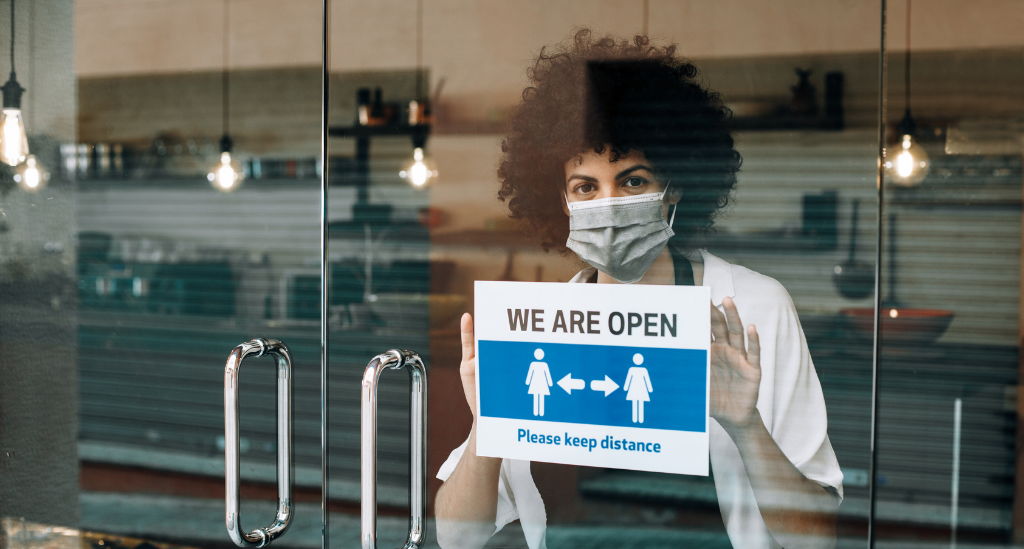Although the Restaurant Revitalization Fund (RRF) program is closed to new applicants, if your small business is part of the food-service industry and you received RRF funds, this updated version of Pursuit’s guidance provides answers to questions you may still have as you move forward.
Pursuit is happy to provide this additional information for our clients and others in this industry. We also encourage you to contact the company or entity that processed your application, as well as your accountant, if you have questions or concerns that aren’t addressed here.
What is the Restaurant Revitalization Fund?
The Restaurant Revitalization Fund provided restaurants and other eligible food-service businesses with funding needed to transition through pandemic-related challenges and move forward. Business owners who received RRF funds aren’t required to repay the funding as long as the funds are used for eligible purposes by March 11, 2023.
Do I qualify for RRF?
The funds allocated by the U.S. Congress for this program have been spent, so the application period is now closed. You may have been eligible for funding if you experienced pandemic-related revenue loss and your business is in any of the following industries:
- Restaurants
- Caterers
- Food trucks, stands, and carts
- Bars, lounges, and taverns
- Breweries and/or microbreweries (onsite sales to the public comprise at least 33% of gross receipts)
- Brewpubs, tasting rooms, taprooms (onsite sales to the public comprise at least 33% of gross receipts)
- Snack and nonalcoholic beverage bars
- Bakeries (onsite sales to the public comprise at least 33% of gross receipts)
- Distilleries and wineries (onsite sales to the public comprise at least 33% of gross receipts)
- Inns (onsite sales of food and beverage to the public comprise at least 33% of gross receipts)
- Other licensed facilities of a beverage alcohol producer where the public may taste, sample, or purchase products
How can I use my RRF funds?
If you received RRF funds, to ensure that you don’t have to pay back the funds, you must use the money for specific expenses. Please note that at this time, the SBA doesn’t allow prepayments of these expenses that fall outside of the program period.
Eligible expenses may include:
- Payments on any existing debt that’s directly related to your business
- Utility payments related to your business including gas, electric and water bills
- Business payroll costs, including sick leave for impacted employees
- Mortgage and rent payments for your commercial space
- Covered supplier costs
- Food and beverage expenses, including raw materials
- Business operating expenses
- Maintenance expenses, including restoration or replacement of fixtures and furnishings
- Supplies, including personal protective equipment for staff and items such as sanitizers and cleaning supplies, as well as other business supplies
- Construction of new outdoor seating areas
- Costs related to safety requirements
- Normal food and beverage costs, including raw materials related to the production of beer, wine and spirits
How do I apply for RRF?
This was a popular program with limited funding, and the funds have been allocated and the application process is currently closed, although there are discussions about re-upping the program’s allocation. That said, if your food-industry business is experiencing financial challenges from the pandemic or for other reasons, Pursuit may be able to help with a small business loan and we encourage you to contact us.
If you have specific questions about your application or the process, please note that Pursuit didn’t administer the RRF program. Questions related to an application or the process should be directed to the agency or company that processed and approved your application, such as the SBA or your POS provider.
Are RRF funds taxable?
At the time of this update, funds allocated through the RRF program that are used for eligible expenses by the March 11, 2023 deadline are not taxable by the federal government. However, we can’t speak to any state-by-state decisions. That said, we strongly encourage all recipients of RRF funds to speak with your accountant about any potential liabilities, including whether there may be state-tax implications.
Do I have to file a report documenting expenses?
Businesses that received RRF funds may be required to report on how funds have been used for eligible expenses but, unlike the Paycheck Protection Program (PPP), you won’t be required to apply to have the funds forgiven. Nevertheless, we strongly encourage you to follow up with your accountant and the entity that you applied to for RRF funds to learn exactly how and when to provide any required documentation, so that you stay in compliance with the terms of the RRF program.
What if we don’t use all of the funds that we received?
If you don’t use all of the RRF funds that your business received by the March 11, 2023 deadline, then the unspent portion should be returned to the U.S. Treasury Department. We anticipate that additional guidance about this point will be made available when the deadline is closer.
Additional references:
You can view a sample application and review the program guide. Remember, though, that the funds for this program have already been allocated and this is for reference only.
SBA website on the Restaurant Revitalization Fund: If you received funds, this site may have information that can help you as you move forward. You can also review the SBA Restaurant Relief Fund (RRF) program guide.
